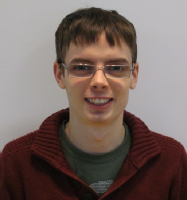WATE PGR 2018 commendee: Daniel Mayoh (Physics)
Why did you start teaching? What (or who) inspired you?
As part of my PhD program it is expected that you will be involved in undergraduate teaching, and even if this hadn’t been the case I would still have volunteered. Teaching was one of the aspects of my PhD that I was really looking forward to.
I was inspired by my high school physics teacher, Mr Redman, whose passion and enthusiasm for the subject drove me to study (and then teach!) physics.
What pearls of wisdom have you been given over the years that have helped you with your teaching?
It’s not about having an encyclopaedic knowledge (though it certainly doesn’t hurt). It’s about just being a few steps ahead of the students.
Is there anything you wish someone had told you when you started out?
It’s fine to not know the answer straight away, there is nothing to stop you looking up the answer and telling them later.
If you were mentoring a first-time teacher, what three bits of advice would you give?
Get to know your students and try to learn their names as quickly as possible.
Be ambiguous. Students are always trying to get you to answer their questions directly, but nine times out of ten the students will benefit more from thinking through the question and eventually answering their own questions.
What advice/top tips would you give to more experienced teachers?
Just because you’ve been doing this for a few years doesn’t mean you still don’t need to prepare for your teaching sessions.
What does winning a WATE award mean to you?
I look forward to being able to share my teaching practices with the wider community as well as spending the prize money developing my teaching.
What do you enjoy the most about teaching? What’s the best part of your job?
I enjoy passing on my enthusiasm for physics to my students. The best part of the job is when the students really start to engage with the material and start to look at the broader picture.
What are the biggest challenges faced by teaching staff? How do you overcome these?
For laboratory demonstration; consistency in marking. To overcome this issue, we try and hold regular meetings at the end of lab sessions to discuss the average mark being given out and if there are inconsistencies discuss where marks are being awarded.
What lessons have you learned from your students?
To learn to be prepared to explain ideas in several different ways and to always make sure all the demonstrators are reading from the same hymn sheet. Students can and do get frustrated when they get several different opinions from several demonstrators.
If you could write a recipe for the perfect inspiring teacher, what ingredients would you need?
Ingredients
- 185 g - Knowledge
- 185 g - Communication
- 85 g - Enthusiasm
- 40 g – Humour
- 75 g - Success
- 25 g - Failure
- 100 g – Flexibility
- 3 large scoops of self-reflection
Method
- Cut 185 g of knowledge into small cubes and place in a bowl. Break 185 g of communication into small pieces and drop into the bowl.
- Heat mixture in a small saucepan. Once well mixed leave to cool to room temperature.
- Tip 85 g enthusiasm and 40 g of sieved humour into another bowl. Make sure to remove any lumps!
- Now chop 75 g of success and 25 g of failure on chopping board.
- Put 3 large scoops of self-reflection into a bowl and tip in 100 g of Flexibility. Whisk for 8 mins until they look thick and creamy.
- Pour the cooled knowledge and communication into the flexibility mousse, gently folding the two together. Next pour the enthusiasm and humour mixture into the bowl. Again, gently folding the two together until well mixed.
- Finally add the chopped success and failure into the mixture and place in the hot oven for 25 mins.
- Put your freshly prepared teacher on the side to cool!
Enjoyed hearing from Daniel? See the full list of 2018 winners and commendees and read other interviews.

